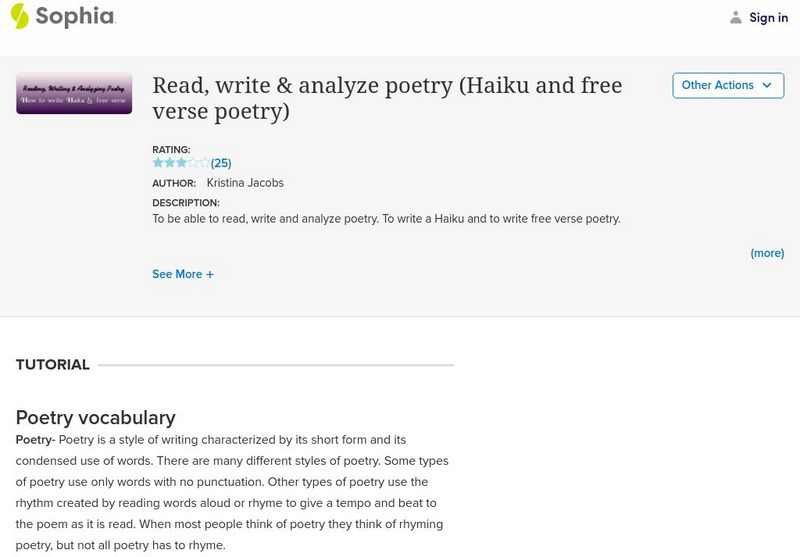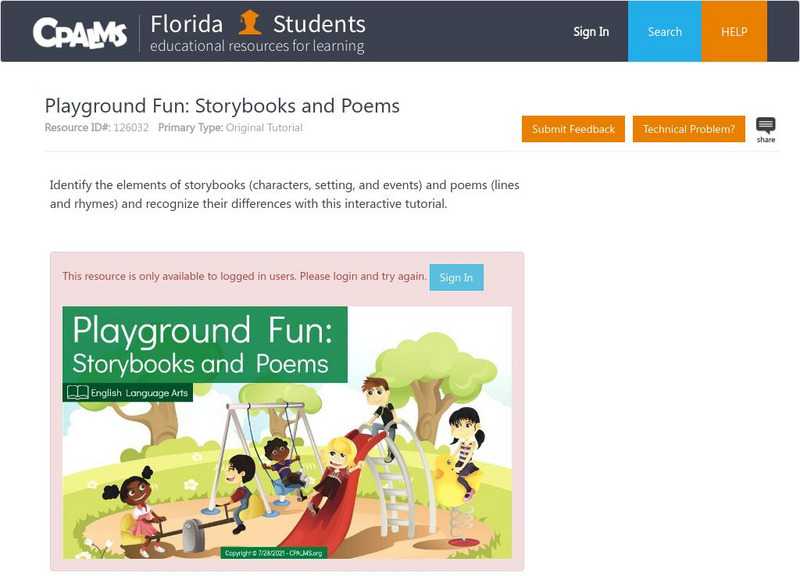Hi, what do you want to do?
Sophia Learning
Sophia: Read, Write, and Analyze Poetry (Haiku and Free Verse Poetry)
This tutorial focuses on poetry; it defines free verse and haiku, explains how to write each, and provides examples. It offers a slideshow which provides tips for beginners on how to read poetry, how to identify types of poetry, and how...
E Reading Worksheets
E Reading Worksheets: Genre Worksheets
This learning module provides remediation with identifying genre of books and various texts. Practice with capitalizing nouns is provided with through worksheets, an online site, and a video tutorial. .
CPALMS
Florida State University Cpalms: Florida Students: Playground Fun: Storybooks and Poems
Students will learn to recognize storybooks and poems and identify their differences with this interactive tutorial.
E Reading Worksheets
E Reading Worksheets: Figurative Language Activities
Numerous activities, games, quizzes, lessons, and PowerPoint presentations are provided for the topic of "figurative language" in writing. Students will have numerous exposures to examples. Students will also be able to practice...
Texas Education Agency
Texas Gateway: Paradox (English Iii Reading)
Source: Paradoxes, James Guppy, Flickr Paradox is a type of figurative language that A Handbook to Literature defines as "a statement that while seemingly contradictory or absurd may actually be well-founded or true." You will find...
Utah Education Network
Uen: Let's Find Out About Money
In this multisensory lesson, students will learn the characteristics of each coin (penny, nickel, dime and quarter) and the value for each type of coin. Students will learn record observational data, learn a song, recite a poem, and play...
Texas Education Agency
Texas Gateway: Irony, Sarcasm, Paradox (English I Reading)
[Accessible by TX Educators. Free Registration/Login Required] In this lesson, you will learn to identify and explain the purposes of irony and paradox in poetry. Both of these poetic devices are ways of saying one thing and meaning...










